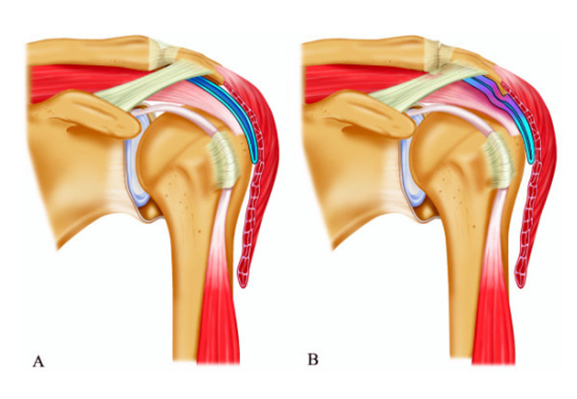Sub-acromial impingement is not a diagnosis but a symptom of a muscular imbalance at the shoulder and scapula regions. This can be due to a rotator cuff strain, partial or full thickness tear, tendinopathy, trauma or simply muscle imbalance from poor sitting posture or overworking anterior muscles in the gym
This can occur if there is an abnormality affecting the rotator cuff, scapula function or the thoracic spin

Subjective History
Acute or insidious onset
A positive painful arc (between 60 and 120 degrees abduction)
In the acute stages a patient may have severely limited range of movement secondary to pain
Often activities such as overhead activities, putting a seat belt on, putting bra or tops on, or reaching up to top shelf cause pain
Objective Examination
There will be a painful arc on active range of movement
Full passive range of movement
A patient will commonly describe pain on the affected side, particularly on external rotation
They may have abnormal movements of the scapula through shoulder motion
References
Image from OpenI – Licensed by CC
Image from OpenI – Licensed by CC
Image from OpenI – Licensed by CC
Treatment / Management / Rehabilitation
Early referral to physiotherapy which may include manual therapy, exercise and acupuncture can have a pain relieving effect
At the sub-acute stage passive treatments have little effect
Exercises will increase in difficulty and resistance, a focus on function will be introduced
Once normal function has returned, exercises to return patient to all their normal activities can then devised
Through all stages the patient should keep themselves physically fit by participating in non-aggravating exercise such as cycling
References
Image from OpenI – Licensed by CC
Image from OpenI – Licensed by CC
Image from OpenI – Licensed by CC